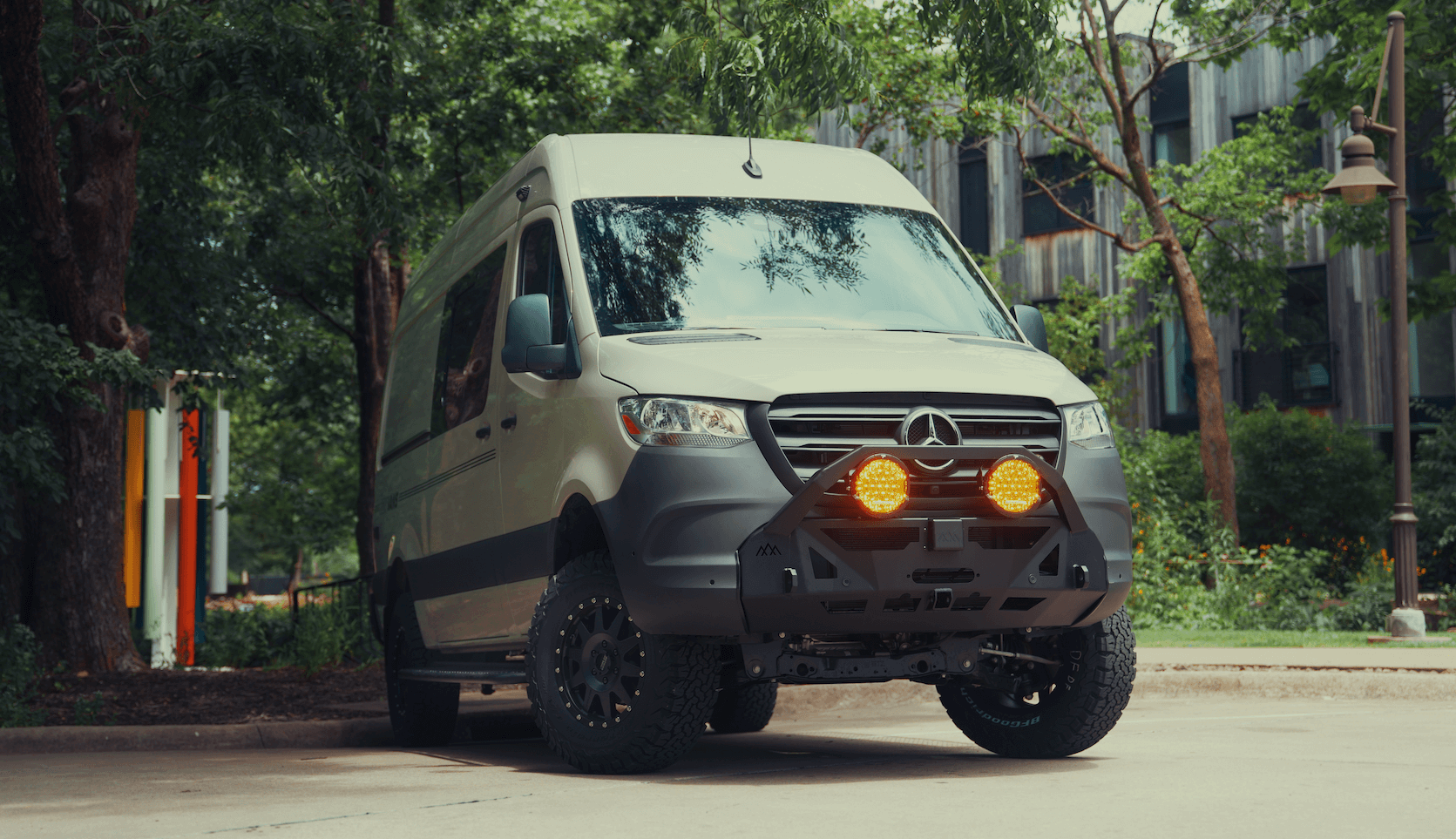Recreational Vans

Swivel seats rotate the driver or passenger chair so the front cabin becomes usable living space when parked. A simple turn converts the cab into a lounge, a dining nook, or a remote office without adding a single inch to the floor plan. In small interiors, this is a major space gain because the seat serves double duty for travel and for camp. Many setups rely on a pedestal table and a pair of swivels to seat two to four people comfortably. For van travel, overland trips, and long weekends, that flexibility pays off every single day.
Most swivel systems use a steel turntable mounted between the factory seat base and the seat frame. A latch or detent keeps the chair locked while driving and releases when you are parked. Some designs include a partial rotation to clear consoles, handbrakes, or B pillars, then a full rotation toward the living area. Others use offset plates that shift the seat slightly during the spin to avoid trim or armrest contact.
A swivel that fits one van may not suit another. Fitment is shaped by bolt pattern, seat height, airbag wiring, occupancy sensors, and obstacles in the cab. Vans like full size European or American platforms often accept dedicated bases engineered for their floor and seat frames. Some have factory swivels offered as an option, while many use aftermarket bases that are tested for that platform.
Common considerations include:
Quality swivels offer positive locking at forward facing and often at rear facing. Some include intermediate stops for partial rotation in tight cabins. Rotation should feel smooth with minimal play. A robust latch is important because it keeps the seat fixed for driving, braking, and impacts. Look for systems that meet relevant seat anchorage standards and include hardware that matches factory grade fasteners.
Not all cabs are symmetric, so the driver side may need more maneuvering than the passenger side. Differences in wheel well bulges, steering column position, and the handbrake can create unique paths of rotation. Before purchase, confirm plate thickness, bolt pattern, and any required bracketry. If your seat has integrated airbags, validate that the base is compatible with the wiring harness and does not pinch cables through the arc of rotation.
Safety begins with a firm lock in the forward position and a secure interface with the factory base. The seat anchorage must handle crash loads. That means using the correct grade hardware, torqued to spec, with thread locking where specified by the manufacturer. Do not drive with the seat rotated, and always verify the latch has fully engaged before moving the vehicle.
Legal considerations vary by region, yet common principles apply. Integrating seat airbags or occupancy sensors requires care to avoid warning lights and to preserve supplemental restraint behavior. Disconnect the battery before any seat unplug to minimize the risk of faults and follow reinitialization steps for the vehicle. Child restraint policies typically expect approved seating positions that face forward and provide unimpeded seat belt access. If a swivel changes height or position, confirm your child seat geometry remains within guidelines.
Many modern seats contain heaters, occupancy sensors, pre tensioners, and airbags. Routing harnesses through a rotating interface requires strain relief and a clear path with no pinch points. After installation, scan the system to confirm there are no stored faults. Any warning light deserves immediate attention, as it can indicate a disabled safety feature.
Swivels are layout multipliers. Two front swivels can transform a compact cabin into a four person lounge with a small pedestal or wall mounted table. A single passenger swivel paired with a slim galley gives you a quick coffee stop without stepping outside. For remote work, a swivel and a foldout table provide a stable desk with excellent legroom.
Consider headroom and eye line with the added seat height. Pedal reach should still be comfortable, and the steering wheel should not feel cramped. Armrests may need adjustment to clear the door panel during the turn. If you rely on under seat storage or batteries, confirm that service access remains possible once the swivel is in place.
A good install feels invisible. The seat rotates smoothly, clears trim, locks with confidence, and does not introduce rattles. Professionals validate torque values, maintain wiring integrity, and check that belts, airbags, and seat sensors function as designed. They also evaluate console interference, handbrake clearance, and table placement to ensure the swivel truly improves your daily flow.
OZK Customs integrates swivel seats into complete recreational builds and overland upfits, aligning the base selection with your platform, seating comfort, and cabin use. Our team focuses on fit, function, and safety so your rig feels natural on day one and reliable on day one thousand. Explore our van platforms and custom build pathways, then let us tailor the cabin around how you actually travel.
Tell us your vehicle, seat features, and how you use your rig. We will spec the right swivel bases, confirm clearances, and install them as part of a cohesive interior plan. From seating comfort to safe wiring, OZK handles the details so you can enjoy the drive and the downtime. Fill out the form to start your build and get pricing.
Ready to add swivel seats to a purpose built rig? Tell us how you travel and we will design, source, and install the right swivel bases, confirm safety clearances, and hand you a dialed cabin. Start your custom build today and get a quote in minutes.
ADDRESS:
6159 E Huntsville Rd, Fayetteville, AR 72701
PHONE:
(479) 326-9200
EMAIL:
info@ozkvans.com